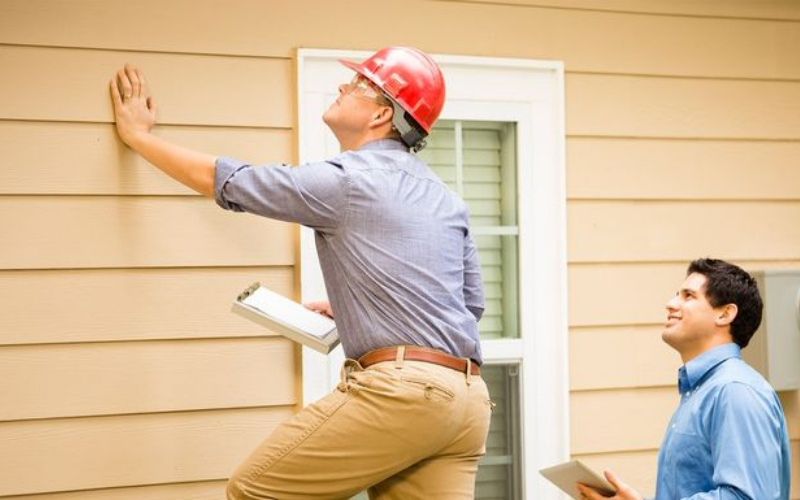A career as a property inspector involves going up, going under, and through the houses. Therefore, they can examine the flaws and defects that can possibly cause problems for the homeowner.
It includes a physical and personal inspection of the entire apartment, building, or townhouse. Additionally, a property inspector writes a report on the condition of all parts, mechanical systems, and the structure of the house.
What does a Property Inspector do?
As you may know, a property inspector writes an observation about different properties. Thus, these records mean a lot to the real estate agency, clients, and insurance companies.
Considering these reports, clients make important decisions regarding the purchase of a particular house or building. Additionally, home inspectors generally particularize in determining observed problems such as ‘white ants’ or ‘mold’. Therefore, insurance companies and financial companies employ them. Furthermore, they use technologies such as laptops and digital photography to help them carry out their inspection work effectively.
Homeowners, and potential homebuyers, rely heavily on home inspectors to help and suggest them regarding their largest investment. Hence, home inspectors must be proficient in examining and scrutinizing the components and systems of the home, and what all the problems are to be looking for. Additionally, he must have the necessary knowledge and ability to describe the exact condition of the house in a concise and instructive manner. If one needs to become a home inspector, he must undergo training in areas including house foundations, drainage systems, roofing, plumbing, writing a comprehensive report, heating, ventilation and air conditioning (HVAC), electrical hazards, environmental issues, and appropriate structure.
How to Become a Property Inspector?
You must first check if you meet all the requirements to become a property inspector. In most states of the United States of America, it is necessary to successfully complete a home inspection course, along with a General Educational Training Diploma certificate, or a high school diploma.
In addition, having some extra degrees can also be an advantage. These are degrees such as a university one or training equivalent to a course in engineering, construction management, and architecture. It’s an added bonus if you’ve done a bit of fieldwork or have hands-on experience in home construction and redevelopment. Other requirements to become a property inspector include excellent verbal and written communication, computer literacy, familiarity with property sales, and knowledge of real estate management, and all real estate and housing legal issues.
You can select and successfully complete a home inspection course from various home inspection schools. In any case, they would make it easier to obtain a home inspection certification. However, there are several home inspection organizations in the US that have also taken steps to bring preparation courses online. These courses include testing gas lines and systems, examining doors and roofs, evaluating the structure of the house, ensuring safety in electrical systems, and evaluating plumbing systems.
You can even look for an opportunity to work under the supervision of a certified professional inspector. Watch what it does and take note of the functions it performs. You can also work as an apprentice or intern at a home inspection company. This will allow you to understand the actual work you would do in the future deeply. In most states, you would have to obtain a permit to work as an apprentice.
How much does a Real Estate Inspector Earn?
It might not be easy to answer this question. However, it depends on different elements. In other words, your experience, your certificate, and your previous records are important.
Generally speaking, these professional real estate inspectors generally earn around $74,000 per year, but this number can vary with an increase in customer speed.

What Does a Property Inspection Include?
The requirements for home inspection vary widely from state to state. These standards of practice describe the minimum standards to expect from an inspection. Some inspection areas are:
Structural elements: Construction of visible foundations, evidence of subsidence or inclination of the structure, floors and floor frames, walls, ceilings, stairs, drainage systems, and window alignment.
Safety: Operation of fire and carbon monoxide alarms, fire sprinklers, condition of stairs, handrails, and railings, and garage door openers.
Grounds: Septic tank leaks, proper drainage, and condition of the home garage entrance, fences, and sidewalks.
Roof: Condition of shingles, any repairs/patches for flat roofs, clean breathers, damage to chimneys and gutters working properly.
Exterior Surfaces: Adequate clearance between floor and wall covering material, condition of paint or exterior wall covering, and lights and electrical outlets in proper working order.
Attic: Sufficient insulation, proper ventilation, and any signs of dripping or water damage.
Indoor plumbing: No leaking or damaged pipes, proper hot water temperature, as well as running toilets, sinks, bathtubs, and showers.
Electrical system: Condition and type of visible wiring according to standards and proper operation of the fuse box, plugs, lamps, and fans.
Appliances: Proper functioning of built-in and freestanding appliances (stove, dishwasher, refrigerator, microwave, washer and dryer, and all other appliances).
Heating and cooling systems: Condition of the boiler, air conditioning (if the temperature allows), water heater, and chimney.
Basement: Solid foundation, walls, and floors with no signs of seepage or water damage.
Garage: Solid foundation, windows, ceiling, frame, and roof; working garage door opener; electrical system conforming to standards; and proper operation of outlets.
Insulation and ventilation: Insulation in attic areas and unfinished foundations, kitchen, bathroom, laundry ventilation systems, and presence of fans.

How to Find a Home Inspector?
Make sure you are comfortable with the home inspector of your choice. They are extremely important and can help you detect and avoid serious difficulties in the home buying process.
Talk to your real estate professional or realtor online agents. They might recommend a home inspector they trust and have worked with in the past.
Ask friends and family. If you know someone who has recently gone through the home buying process, they might have a good recommendation.
You can find a property inspector on social media like Instagram. As you may know, Instagram for the real estate industry is like a great source. Real estate Instagram growth is incredible.
Look for reputable sources. Therefore, clients should look for an inspector who has an affiliation. These groups could be the National Institute of Building Inspectors, the American Society of Home Inspectors, and the International Society of Certified Home Inspectors. We can say that these are some of the best reputable inspector associations. Besides, their websites have a “find an inspector” service to locate a member in your area.
All in all
We tried to help you know about property inspectors. These people can play an important role when you want to buy a property. Thus, do not miss reading this article. It can give you all the necessary information about this job. In other words, all knowledge you need is here. It considers their duties, how to become a property inspector, and where you can find them. Hence, we can say this blog can be helpful for both property inspectors and clients.
